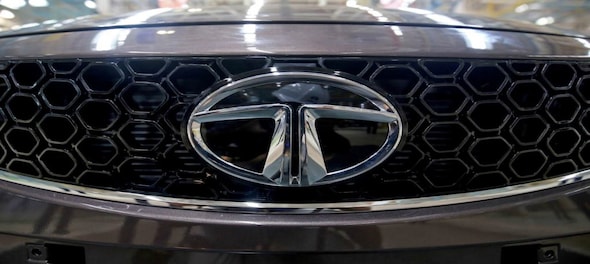
Tata Motors has ambitious plans for its domestic passenger vehicles (PV) business. In March, the automaker announced it will spin off the group's PV and electric vehicles business into a separate subsidiary.
Shailesh Chandra, the new President of the passenger vehicle and EV business said the new subsidiary will focus on "achieving key milestones in a time-bound manner", a lofty task considering widespread concern among shareholders about the viability of the standalone domestic business.
Chandra said the company will target a double-digit market share in the passenger vehicle category, and strengthen operating cash flows. With a fully refreshed range of BS-VI models, Tata Motors said it is ready to "reimagine the PV business".
In a conference call with analysts after the automaker announced its fourth-quarter earnings, Chandra outlined six key focus areas which the company will work with to achieve these targets.
The first of these, he said, was to rejuvenate front-end sales to focus more on growing retail traction. Tata Motors is currently the only Indian automaker which reports retail sales numbers, instead of wholesale billings. PB Balaji, Group CFO, Tata Motors said monthly reporting of wholesale dispatches "was just noise in the system", and that wholesale market share does not factor in terms of dealer profitability.
Drawing from that, the second focus area Chandra spoke of was driving dealer growth and network profitability. Wholesale reporting of sales, Tata Motors said, leads to dealers being saddled with inventory, which is the biggest cost for dealers of automobiles.
The third is re-imagining product delivery, to serve customers the right products at the right time.
Next, Chandra said the PV business will also focus on the digital medium as a key interface with the customer. The OE expects the online medium will be a key point in the customer journey. During the lockdown, the company, much like other automakers, has doubled down on its online sales initiatives to drive a "contactless" buying experience for potential customers.
The digitization of the customer journey, Chandra said, will also extend into after-market services, making it the fifth point of focus for the company.
Lastly, Tata Motors wants to enhance its brand imagery. The brand's messaging lately has clearly been focused on the younger demographic, and Chandra said the company wants this connection with customers to be deeper.
For example, Tata Motors' target audience for the Nexon EV is an environmentally conscious, young tech geek. The company began to set up showroom-in-showroom kiosks in Tata Group company Croma to take bookings for the Nexon EV, hoping to appeal to this generation.
With the path laid out in front of the company's new captain, all eyes now are tuned to see the progress of this business, which will soon be spun off as a standalone subsidiary, and how it delivers on its stretched targets.
For investors, Tata Motors' domestic business has been a big concern as it drags the company's profitability. TaMo said it is scouting for a suitable strategic alliance to rejuvenate the PV business and is currently in conversation with OEMs to secure suitable partnerships.
First Published: Jun 17, 2020 9:00 AM IST
Check out our in-depth Market Coverage, Business News & get real-time Stock Market Updates on CNBC-TV18. Also, Watch our channels CNBC-TV18, CNBC Awaaz and CNBC Bajar Live on-the-go!


Lok Sabha Election 2024 — how regional parties are challenging national giants in Phase-4
May 15, 2024 6:17 AM
Supreme Court refuses plea seeking 6-year poll ban on PM
May 14, 2024 7:14 PM
Punjab Lok Sabha elections 2024: A look at BJP candidates
May 14, 2024 7:06 PM
Lok Sabha polls: EC disposes of 90% complaints related to MCC violations
May 14, 2024 4:45 PM

